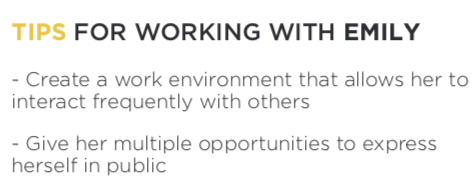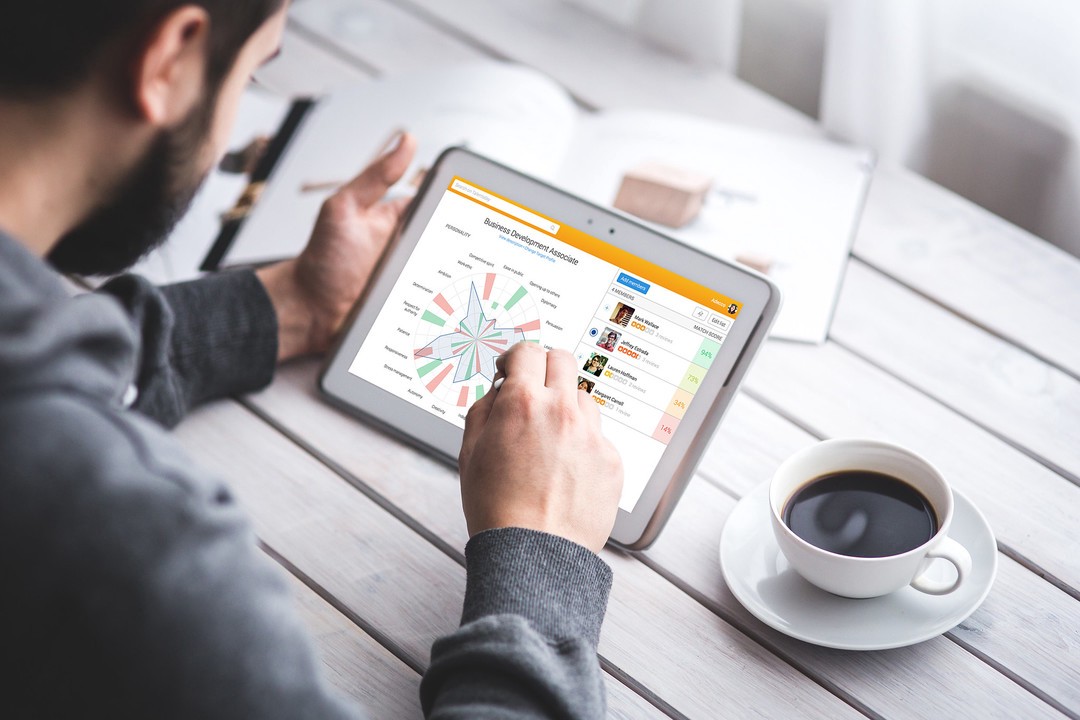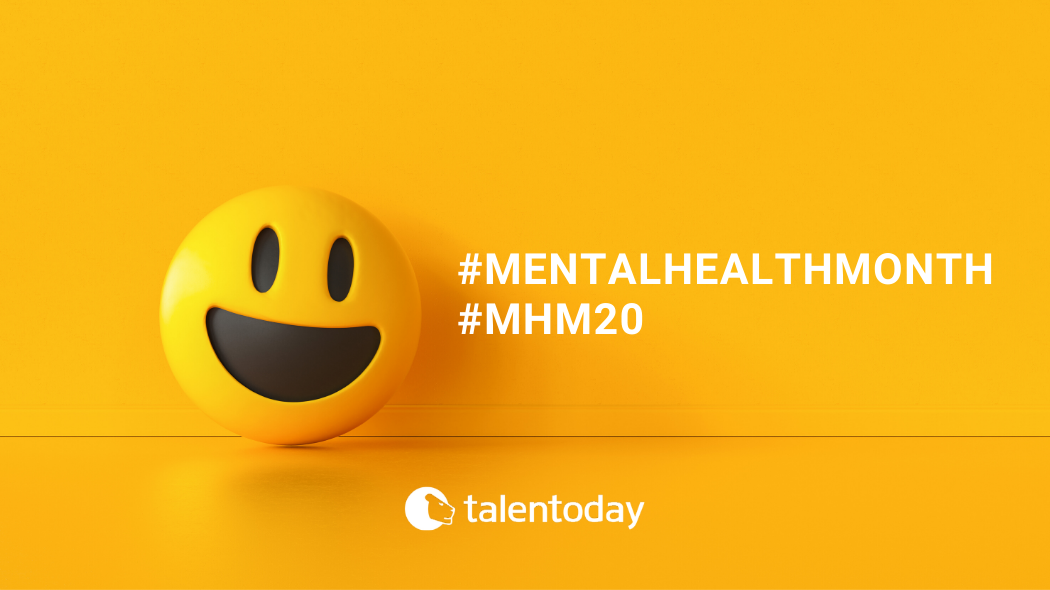Prioritizing Well-being with Psychometrics
Circa 2019, well-being and soft skills were hot topics of discussion around personal growth and internal fulfillment. However, as we moved into 2020, individuals had new norms to navigate, from social isolation, economic stress, and round-the-clock news coverage for the COVID-19 pandemic. Anytime someone goes through a change, it’s not uncommon for anxiety and stress to increase, and this pandemic is no exception. Based on a study completed by Inpulse, featured in Four Ways Leaders Can Support Anxious And Lonely Teams¹, in mid-April 2020, research found that 65% of employees have felt nervous, anxious or on edge, and 43% have not been able to stop or control worrying. Further, pre-COVID19 pandemic, it was found that people with depression have a 40% higher risk of developing cardiovascular and metabolic diseases than the general population, and globally, depression is the leading cause for disability². For individuals, the ability to identify depression, anxiety or stress plays a critical role in managing their well-being. Luckily, individuals aren’t alone in this, as psychometrics and technology are here to help!
Understanding yourself
Simply put, your well-being is the level at which you feel comfortable, happy and healthy³. The tricky thing about well-being is there’s often more than meets the eye. As humans, everyone is unique in how they interpret their anxiety (or stress), and they’re unique in how they make time — assuming they do — to address their mental and physical health challenges. For many, it’s often easy to prioritize work, family and other responsibilities over one’s own well-being, but that doesn’t make it a healthy or sustainable practice. With the use of technology, companies like HealthPersonas and Talentoday are leveraging psychometrics to uncover the obstacles a person is dealing with and empower them with their soft skill strengths. In both cases, the overall goal is to help individuals increase their level of self-fulfillment, and ultimately their well-being.
Prioritizing your well-being
Now more than ever, psychometrics have the ability to positively impact us and those around us. Even for the most selfless people, taking care of those around you means taking care of yourself first. We are all aware being healthy is more than just physical. HealthPersonas measures and improves emotional and behavioral health, the way we feel and think, taking a well-being approach to healthcare and unlocking personalized results along the way. A key component of HealthPersonas success is their KnowMe™ assessment, which was developed in partnership with Talentoday. KnowMe™ offers a fun user experience that allows individuals to quickly identify what makes us unique and how to best seek health and happiness. To complement the KnowMe™ findings, HealthPersonas offers an engaging mobile experience by providing emotional health support with both chat and video-based expert coaching.

HealthPersonas founder, Alex Bitoun, has worked in healthcare delivering chronic care programs to self-funded employers and health plans for the past 15 years. Alex notes, “Emotional health is a key component to overall health, and is too often ignored in the current care paths. By focusing our efforts on how our members feel, we not only improve their well-being, but we are unlocking clinical results that had eluded them in the past.”
Lean into your uniqueness
Just like each person is unique in how they interpret and respond to adversity, everyone is unique in their personality and motivations. When faced with a challenge, we may see how our personality traits and motivations work together to either lift us up, or potentially bring us down. Although there’s a number of things that we can’t control, through understanding our dominant personality traits and motivations, we can make the choice to create a comfortable environment that corresponds to our needs and increases our overall well-being. Through Talentoday’s soft skill assessment, MyPrint®, we leverage psychometrics to empower individuals to understand not only what their dominant personality and motivation traits are, but we also provide guidance on what environments (or actions) will allow them to hone in on their strengths and fulfill their needs. Through having these personalized insights at your fingertips, you can make incremental changes in your daily routine, work style or relationships, to increase your sense of self-fulfillment and even share results with those that you collaborate with most often for additional support.

Expanding your reach
With about half of employees feeling some form of anxiety, worry or sadness, odds are someone close to you is battling some degree of discomfort during this time. With social isolation changing how we interact with people, from limited (or no) in-person conversations to hugging our family, individuals have been relying on technology to create a sense of connection. As a number of people leverage FaceTime, Zoom and other communication platforms, psychometrics-based technology opens the door for a new type of collaboration. Whether it’s sharing your insights with those around you, encouraging them to do the same, or utilizing virtual health services (like those offered by HealthPersonas) you’re empowering the people close to you by removing stigmas associated with well-being and mental health support, while providing them tangible solutions. Similar to how you have to prioritize your own well-being to achieve the positive impact of these digital solutions, you have to encourage those close to you to do the same.
The concept of well-being, seemingly simple when you break it down to its most basic parts — happiness, health and comfort — is anything but simple when you think of the uniqueness and complexities of each individual. Luckily, both the technology and psychometrics used are equally as complex behind the scenes, while providing easy to understand solutions to the end user. For individuals ready to prioritize themselves, even if it’s just for an hour a day, you can get started by taking both the KnowMe™ and MyPrint® assessments. Both assessments can be completed totally free of charge and will give you access to your individual insights, enabling you to put your well-being front of mind.
Looking for additional resources and support for mental health? See National Alliance on Mental Health (https://www.nami.org/home) and Mental Health Foundation (https://www.mentalhealth.org.uk/).
For more information on Talentoday visit our company website or you can reach out to us directly at contact@talentoday.com.
Radio, Waves, Neuroscience… Do you Know What They Have in Common?

Today’s post deals with the relationship of strategy to human capital. Today, it is an inseparable pair whose interactions must be understood so that any adaptation, of individuals and organizations, to the new conditions of the working environment can be made in an optimal manner. Business models are changing, startups, however unstable, attract more young and dynamic executives, while large groups, large by their means, seem to fall off their pedestals*. If, at first glance, we realize, in dismay, that “the stability of an enterprise”, yet a dinosaur argument, is overcome by the dictatorship of the foosball, one wonders what will really motivate people to work in a company.
- Is it the technical skills?
- Is it the meaning of the missions?
- Is it the enrichment of individuals?
In other words, and to illustrate our point, we quote an excerpt from the book “Parallel Worlds” by Michio Kaku, American theoretical physicist and futurist.
“ All around you, there are hundreds of different radio waves being broadcast from distant stations. At any given instant, your office or car or living room is full of these radio waves. However, if you turn on a radio, you can listen to only one frequency at a time; these other frequencies have decohered and are no longer in phase with each other. Each station has a different energy, a different frequency. As a result, your radio can only be turned to one broadcast at a time.Likewise, in our universe we are “tuned” into the frequency that corresponds to physical reality. But there are an infinite number of parallel realities coexisting with us in the same room, although we cannot “tune into” them. Although these worlds are very much alike, each has a different energy. And because each world consists of trillions upon trillions of atoms, this means that the energy difference can be quite large. Since the frequency of these waves is proportional to their energy (by Planck’s law), this means that the waves of each world vibrate at different frequencies and cannot interact anymore. For all intents and purposes, the waves of these various worlds do not interact or influence each other.”
What about the neurosciences?
Neurosciences, and psychometry in particular, intervene to support this exercise of search and identification of “frequency” in the field of human capital management. A new way to rethink management. When psychometry sets foot in the company, in this place of authority, rules and processes, it is to bring intelligence and well-being to all those who are trying to escape by promoting the alignment of “frequency” of the individual with his work environment. And finally, it is also to bring more efficiency, competitiveness, to the organisation and ultimately results by almost drastically reversing the commitment of its employees. In conclusion, I invite you to discover your frequency. Take the test here for free or ask for a custom demo here!
MICHIO KAKU: Graduated from Harvard (B.sc.,1968) and Berkeley University (Ph.D.,1972). Engaged in work on the “theory of everything” seeking to unify the four fundamental forces of the universe. Among his books “ Physics of the Future: How Science will Shape Human Destiny and our Daily Lives by the Year 2100”.
* Only 9% of the employees in France say they feel engaged at work, Gallup 2013


